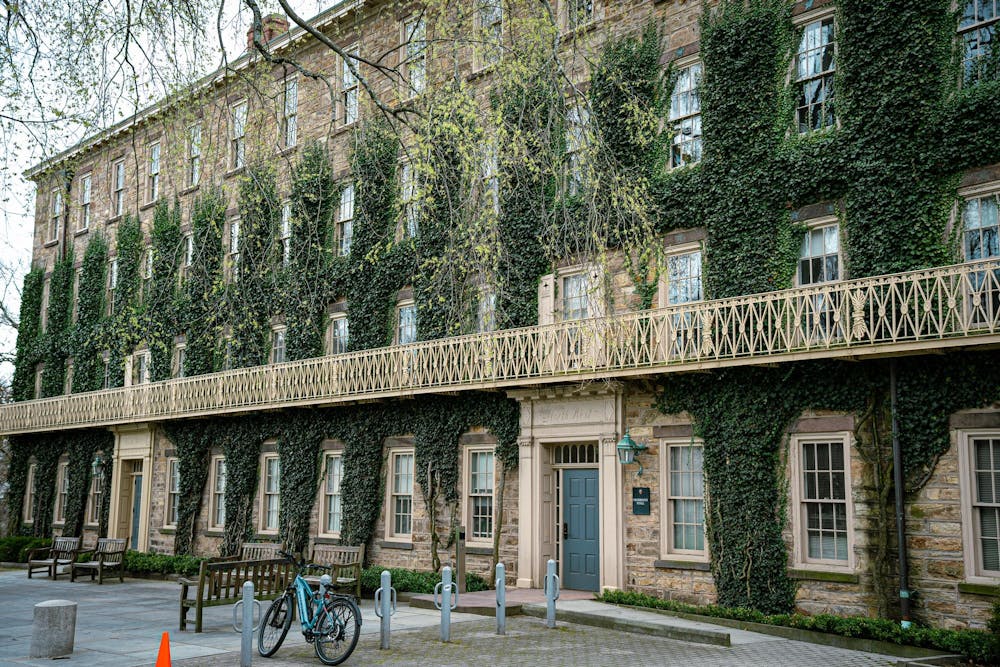Students and faculty in the Program in Latino Studies (LAO) at the Effron Center for the Study of America are beginning prospective discussions on changing the gendered language used in the program’s name. While no formal recommendation has been made, both students and professors have emphasized a need to engage in conversations around the usage of “Latino.”
“At the Effron Center, it is crucial that we model scholarly and meaningful conversations that produce transformative change, both on campus and in the wider world,” Professor Aisha Beliso-De Jesús, the Olden Street Professor of American Studies and chair of the Effron Center, wrote in an email to The Daily Princetonian. “When the question was raised about the continued relevance of the term ‘Latino,’ we saw an opportunity to begin a serious dialogue.”
The potential new terminology surrounding LAO aims to “reflect gender inclusivity” while also acknowledging “the specificity of the Latin experience in the U.S.,” according to Professor Yarimar Bonilla, who teaches American Studies in the Effron Center.
“One of the reasons we are reconsidering the term ‘Latino’ is because it has been critiqued for normalizing cis-masculine genders as the default, without allowing for the fluidity of cis or trans women, or other non-binary identities,” Beliso-De Jesús wrote to the ‘Prince.’
Students raised the same primary concern.
“‘Latino’ is kind of problematic because it’s homogenizing an entire population,” Destiny Gonzales ’25, who is minoring in Latino Studies, said.
The “o” suffix in Spanish designates the term as masculine, reinforcing a traditional gender binary that “erases those who identify as women, non-binary, or queer,” according to Effron Center Professor Lorgia García Peña.
“This is why terms like ‘Latinx’ and ‘Latiné’ have become increasingly used; they are more inclusive of the diversity of gender and sexuality within these communities,” Beliso-De Jesús wrote.

Commonly used labels such as “Latino” and “Latinx” also hold various meanings for different individuals, adding another layer of complexity to the conversation.
While García Peña uses the term “Latinx” in her writing and teaching, she also acknowledges that other people have different preferences for word choice. “They prefer ‘Latiné,’ which to me reinforces Spanish linguistic dominance, which is not how I view Latinidad. So, the terms are complicated and the debates are rich,” she said.
Bonilla also acknowledged the complexity of ‘Latinx’ as an alternative.
“For some people, [‘Latinx’] reflects a gender-neutral term, but for other folks, it reflects a specificity of second-generation Latino/Latinas born in the U.S.,” Bonilla said.

Faculty and students also want to take into account the close geographic connection between Latin America and the Caribbean as they reconsider the terminology used in the program and at the Center more broadly.
“I feel like there’s kind of a divide in whether you’re talking about the Caribbean or other Latin countries,” said Valeria Velasquez ’27, who is considering a minor in Latino Studies.
“We share a lot of the same cultural values and traditions, but the whole ‘Latino’ category is just too broad of a category — it encompasses so many different people from different places, so it’s really hard to group them all together into this one term,” she said.
“Latino Studies and Caribbean Studies have been integrally connected,” Bonilla said. “We wish to find a name and a definition and a purpose for what we want to do here that speaks to our strengths and to the directions in which we want to go.”
Currently, the Effron Center is coordinating workshops and discussions to explore the different terms being considered, including their histories, evolutions, and contemporary applications. The first of these workshops is scheduled for November 19th, and will feature Professor Jonathan Rosa from Stanford University’s Center for Comparative Studies in Race & Ethnicity.
“My sense is that the debate is what’s much more important than the label that we use,” Rosa said. “On the one hand, you’re seeking to institutionalize something and you want it to be widely legible; on the other hand, you want to be responsive to community needs and concerns.”
Students and faculty emphasized the importance of discussion and Princeton’s strengths in facilitating such discussions.
“It’s actually a rare occasion to have a moment to pause and reflect and really think through what you want to do, and to document that reflection as well,” Bonilla said. “This is a time for us to think through what will make Latino, Latinx, Latina Studies — whatever the name ends up being — distinct in the field and across the nation as emerging as a new center.”
Rosa highlighted the vitality of the Effron Center’s faculty in particular. “At a place like Stanford, we don’t hire people often in Latino Studies; we hire people in mainstream disciplines like sociology or anthropology,” he said. “Princeton is recruiting scholars in Latino studies and strengthening their Latinx, Latine, Latino studies tremendously, and that’s very exciting.”
“I’ve been really happy with the faculty that they’ve hired,” Gonzales said. “I feel like the curriculum has been really radical and I really like that.”
In addition to conversations surrounding the way that terms such as “Latino” are used at the Center, certain aspects of the curriculum will also be reviewed, according to García Peña. “We will necessarily look at the name, at the curriculum, programming, and more to make sure the program reflects the scholarship, rigor, and commitments of our faculty and students,” she said.
As the Effron Center continues to expand and incorporate new faculty appointments, Beliso-De Jesús noted that one of its broader aims includes engaging deeply with how the LAO program “addresses and includes the experiences of Latina/o/x/é people in the United States from Mexico, Latin America, the Caribbean” and explores the “transnational and diasporic negotiations with and between imperial, colonial, and capitalist projects.”
García Peña said, “It is a really exciting moment for Latino/a/x/é Studies as the field is growing globally, and I am excited to see how this growth manifests at Princeton.”
Sena Chang is a News contributor for the ‘Prince.’
Please send corrections to corrections[at]dailyprincetonian.com.








